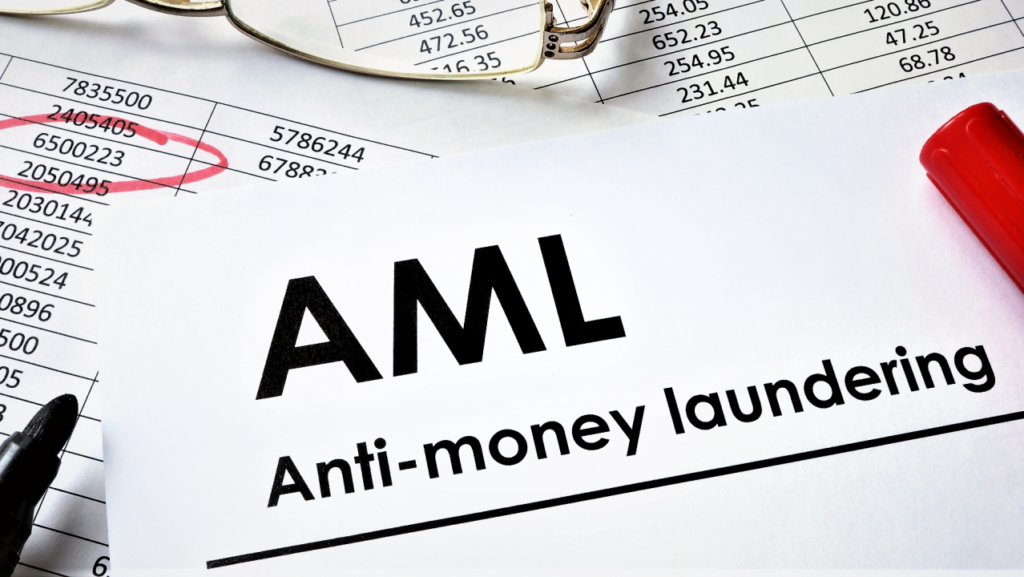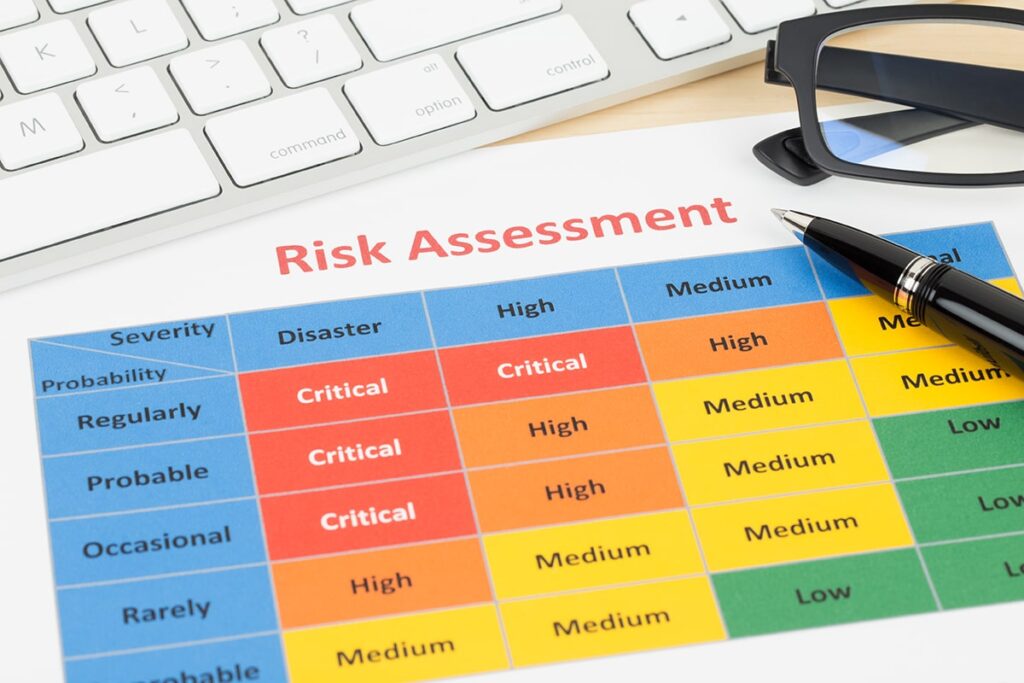
The financial sector, including cryptocurrency, is highly exposed to crime risks. Therefore, almost all states require organizations to implement AML rules, and firms are fined if these requirements are unmet.
There are AML Courses that help protect the organization from illegal transfers. Here, experts will give detailed information on this issue, which will help you conduct business legally.
What will the participant get from the AML courses?

As a certified member, many benefits allow you to develop and implement a policy in the company where you work:
- There is confirmation that he wants to comply with all the requirements specified in the policy;
- Acquiring helpful knowledge in the field of financial crimes, which will be beneficial in the process of working in the financial sector;
- This knowledge will be able to preserve the company’s reputation and increase its rating among partners by complying with these rules;
- By completing the course, the participant will be able to more effectively identify the risks associated with potential illegal activities and apply methods to prevent ML.
Such courses have a specific approach that will help to understand the system of illegal money transfers better. And this means that after passing the seminar, you will become more competent in the issue related to fraudulent financial transactions. In addition, the courses provide specific practical methods and best practices used in the fight against ML.
Learn more about this policy

Illegal financial transfers are those transactions in which the source of capital is hidden to hide a financial crime and pass it off as legitimate. Practice says that about 5% of the GDP of illegal transactions occurs annually worldwide. As a rule, this is connected either with the criminal activities of companies or with the financing of terrorism. A single legislative framework has been created for all states to prevent ML per established requirements.
Therefore, it is highly recommended to be fully aware of the existing problem and to know the various strategies to prevent financial crime. These courses are an effective way to get helpful data that every financial institution will need. Workshop participants will be able to detect potential risks and prevent illegal transfers.
Most of all, this applies to large financial institutions, most of which value their spotless reputation. The company’s specialists must professionally develop and implement fraud prevention techniques, thus proving their compliance with requirements.
Consider the list of AML workshops
Now there is an opportunity to take various courses aimed at helping employees of financial companies in the fight against ML. Such training is focused on a specific area and includes the current rules that apply directly to your company’s activities.
When the participant completes the course, they will be able to take a particular test, obtaining a specific accreditation in the field of AML based on the results of the tests.
AML database for FinTech

Such a course on combating illegal transfers is designed for the field of financial technologies. It provides an in-depth look at best practices and strategies to help detect and block financial crime.
FinTech AML Intermediary
It is an online mid-level seminar on combating illegal transactions. It is based on the FinTech Fundamentals course. It is a higher eligibility level for participants planning to secure a career in finance. And yet, this seminar details the methods of combating ML.
Database for the gambling industry
These are tailor-made courses focused on a company operating in the gambling industry, and there are classes for employees involved in AML policy, which is unique in this sector. The seminar topics explain how to control cash that has been obtained criminally. In addition, they tell you how to identify your clients correctly.
AML base for cryptography
This online course is for participants involved in the field of cryptocurrencies. The seminar program allows you to understand how it is necessary to control digital assets and gives the concept of blockchain technology and financial platforms with a decentralized control system (DeFi).
Certification according to risk assessment

The course is intended for professionals who plan to control the massive risks associated with AML. By completing the seminar, the participant can significantly reduce the risks associated with crime and learn about effective strategies to detect and block illegal transactions.
It is necessary to combine the efforts of many financial companies through courses for the relevant employees to achieve results by the AML policy.
In today’s financial landscape, particularly in the realm of cryptocurrency, the prevalence of crime-related risks necessitates stringent measures to combat illicit activities. Virtually all states have imposed Anti-Money Laundering (AML) regulations to safeguard financial institutions from unlawful transactions. Failure to adhere to these requirements can result in substantial fines. This underscores the critical need for AML courses, where experts provide comprehensive insights into this subject, equipping individuals and organizations with the knowledge required to navigate the complex world of financial compliance.
Participation in AML courses offers numerous advantages, empowering attendees to not only align with the policy requirements but also to enhance their proficiency in handling financial crimes. This newfound expertise not only preserves a company’s reputation but also elevates its standing among partners by demonstrating a commitment to these regulatory standards. Moreover, completing an AML course equips participants with the skills to more effectively identify and mitigate the risks associated with potential illegal financial activities, thereby fortifying the financial sector against money laundering.
AML courses employ a specialized approach that delves deep into the mechanics of illicit money transfers, providing participants with invaluable insights. These courses are designed to enhance competence in identifying and preventing fraudulent financial transactions. Furthermore, they furnish attendees with practical methods and best practices that are indispensable in the battle against money laundering.

It’s imperative to comprehend the gravity of illegal financial transfers, a type of transaction designed to conceal the source of capital, masking a financial crime as legitimate. Alarmingly, such transactions account for approximately 5% of the global GDP each year, often linked to criminal enterprise or terrorism financing.
To counter this pervasive threat, a unified legislative framework has been established worldwide, necessitating a comprehensive understanding of the issue and strategies to counter it. AML courses offer an effective means to acquire the knowledge essential for financial institutions to detect potential risks and combat illegal transfers, particularly vital for entities cherishing their pristine reputation.
Today, a diverse array of AML workshops cater to specific sectors within the financial industry, delivering customized training that addresses sector-specific needs. Upon completing these courses, participants can undertake specific assessments and attain accreditation in AML based on their performance.
These AML courses span a wide spectrum, catering to diverse industries and roles, including:

FinTech AML Database: Designed for professionals in the financial technology sector, this course offers a comprehensive look into best practices and strategies to detect and prevent financial crimes.
FinTech AML Intermediary: An online intermediate-level seminar that builds upon the FinTech Fundamentals course, this program provides a deeper understanding of methods to combat money laundering.
AML Database for the Gambling Industry: Tailor-made courses for organizations operating in the gambling sector, covering cash control, identification of clients, and unique AML policies specific to this industry.
AML Base for Cryptocurrency: Focused on the cryptocurrency space, this online course explores the control of digital assets, blockchain technology, and decentralized financial platforms (DeFi).
Certification According to Risk Assessment: Geared towards professionals dealing with high-risk AML situations, this course equips participants with strategies to mitigate risks and effectively identify and block illegal transactions.
In the pursuit of robust AML policies and practices, it is imperative that financial institutions harness the collective knowledge and expertise of their personnel through comprehensive AML courses. These initiatives reinforce the commitment to upholding AML policies and foster a safer financial environment for all stakeholders.








